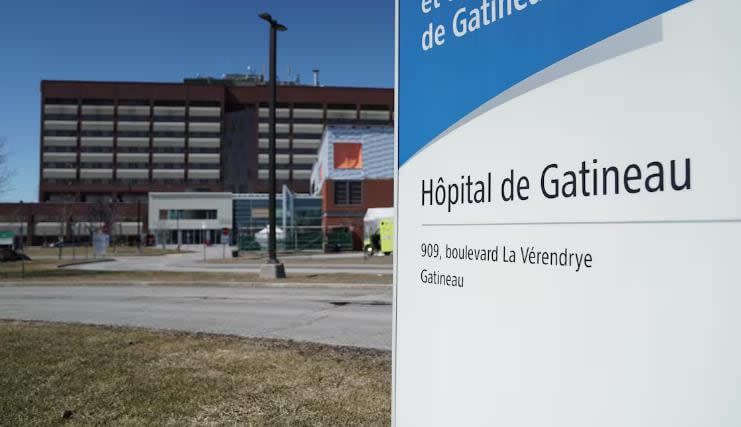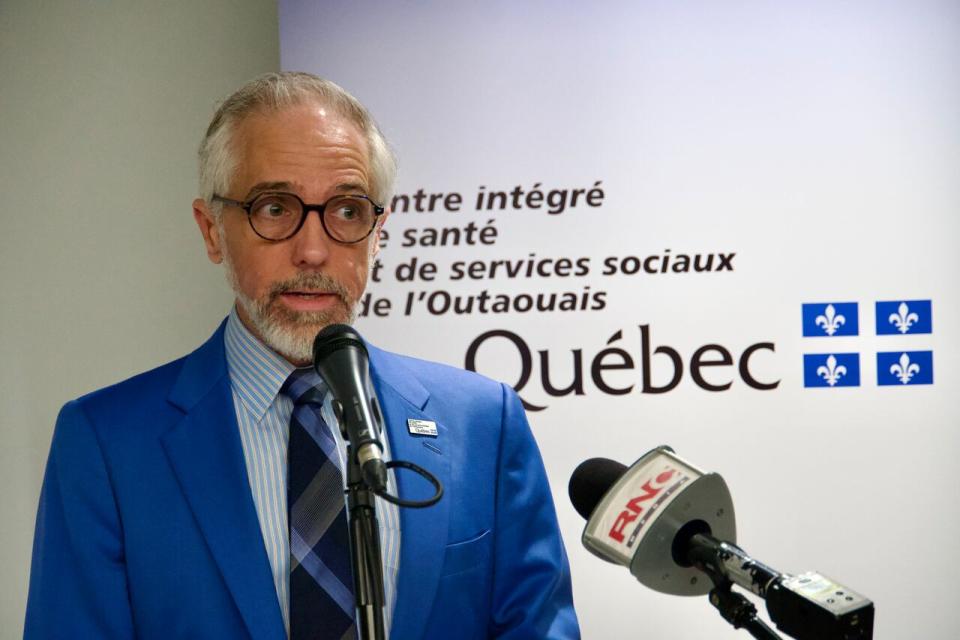Outaouais health unit prepares for 'worst-case scenario' this summer

Western Quebec's health authority says it's planning ahead for what could be a very difficult summer for the region's hospitals due to staffing shortages.
The Centre intégré de santé et de services sociaux de l'Outaouais (CISSSO) has a contingency plan in place that could include service closures and delays, according to CEO Marc Bilodeau.
"We're looking at basically closing surgical lines — so that's operating rooms, if you will," Bilodeau said.
"We're looking at potentially reducing the number of hours in a day where some lines are open. [But] it could go to the worst-case scenario [of] closing some sites where we do surgeries."
Bilodeau said the region's health-care personnel are entitled to taking summer vacation, and given the fact the region is already short workers, staffing will be a bit tighter this summer.
"It's the time of the year where families are reunited and can take some time off. I have no choice then to reduce some level of services, mainly for surgical services as well as digital imaging — so X-rays and CT scans and so on," Bilodeau said.
Staffing levels have slowly declined over the last five years, he added, and haven't recovered to pre-pandemic levels.

According to CEO Marc Bilodeau, the health authority's 'priority number one' is to avoid using the contingency plan at all this summer. (Simon Lasalle/CBC Radio-Canada)
Imaging services could be relocated
According to the contingency plans obtained by CBC and Radio-Canada, CISSSO has already created backup measures for the period from Jun. 17 to Sept. 8 that include changes to imaging services and operations.
In a worst-case scenario, the plans describe completely closing imaging at the Gatineau Hospital and transferring the remaining employees to the Hull Hospital.
The Hull Hospital would then host the short-term care unit, neonatology, obstetrics, intensive care, pediatrics and maternity, while the Gatineau Hospital would take care of emergency units and mental health hospitalizations.
It goes on to detail potential closures of the operating theatres at the Gatineau, Maniwaki and Pontiac hospitals, with the exception of urgent surgeries.
Bilodeau said the goal is not to use the plan.
Could 'dangerously' compromise patient care
Quebec's largest nurses' union, the Fédération interprofessionnelle de la santé du Québec (FIQ), learned of the contingency plan last week.
The plan is worrying, said FIQ spokesperson Genevieve Renaud, and patient care will be "dangerously" compromised if it comes to pass.
"Forcing the professionals to go work somewhere else will cause even more to leave the health-care system. That's inevitable," Renaud said.
"We'll be paying for collateral damage caused by this plan for many years to come."
In response to CISSSO's contingency plan, FIQ presented a written list of recommendations that include doubling wages for existing employees and offering financial incentives to encourage health-care workers to volunteer.
They've yet to hear back.
Gatineau MP Steve MacKinnon also responded to CISSSO's contingency plan and the broader struggles facing health care in the region.
"It's a situation that will require the highest levels of the Quebec government," he said in French. "It's something we've known about for years, but we're on the precipice. Doctors say people will die, people will suffer."
In a written statement, the office of Quebec Minister of Health Christian Dubé described the situation as worrying and said it was monitoring it very closely.

